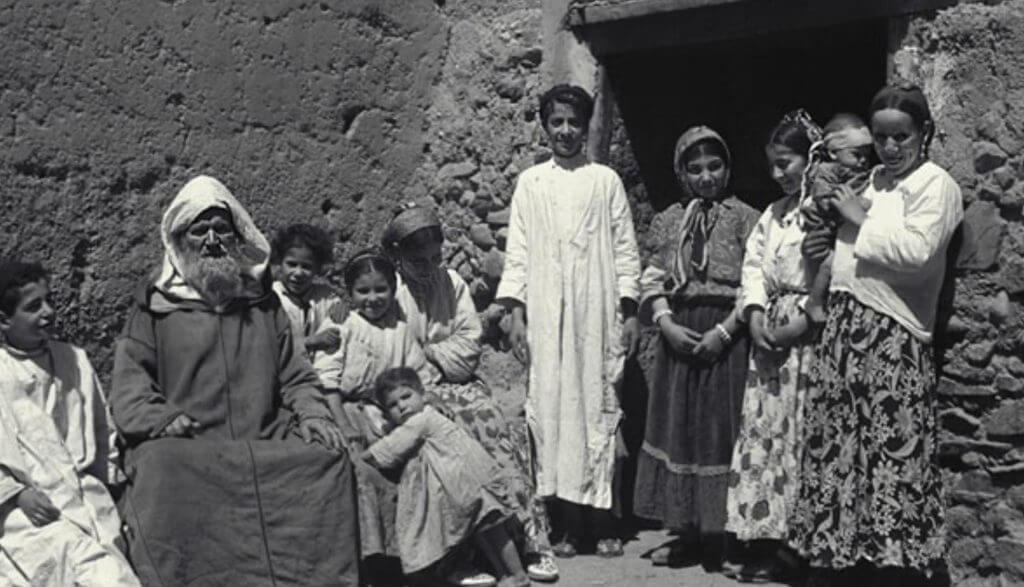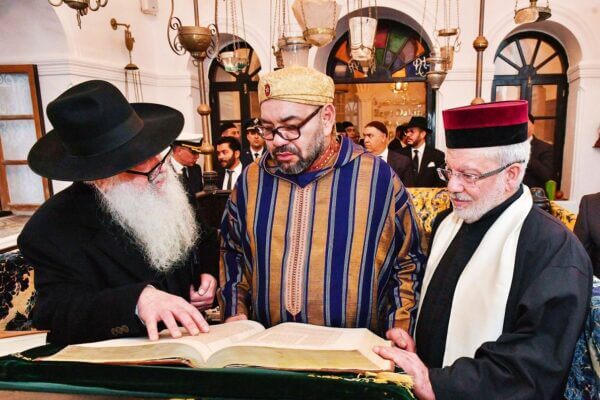Unveiling the Jewish History in Morocco

A Glimpse into Morocco’s Jewish Heritage
Morocco, a land teeming with a rich tapestry of cultures and traditions, holds within its borders a fascinating chapter of Jewish history. Jewish history in Morocco spans centuries, with Jews weaving themselves intricately into the fabric of Moroccan society, leaving an indelible mark on its culture, cuisine, and identity.
Tracing Ancient Roots
The roots of Jewish presence in Morocco trace back millennia, with evidence of Jewish communities dating as far back as the Roman era. However, it was during the Spanish Inquisition of 1492 that Morocco saw an influx of Sephardic Jews, fleeing persecution in Spain. Finding refuge in Morocco, these Sephardic Jews brought with them their language, customs, and rich cultural heritage, contributing to the vibrant mosaic of Moroccan society.
Flourishing Amidst Diversity
Morocco’s history is marked by periods of tolerance and coexistence between Jews and Muslims, particularly during the country’s Golden Age. From the 8th to the 15th century, under Muslim rule, Jews in Morocco thrived in various fields, including commerce, finance, and scholarship. They played integral roles in shaping the cultural and intellectual landscape of the region, engaging in dialogue and exchange with their Muslim counterparts.
During this Golden Age, cities like Fes, Marrakech, and Tangier became centres of Jewish life, with bustling communities and flourishing synagogues. The Mellahs, or Jewish quarters, became vibrant hubs of commerce and culture, where Jews and Muslims coexisted harmoniously, fostering an atmosphere of tolerance and mutual respect.
Nurturing Cultural Traditions
Despite facing challenges and periods of persecution, Moroccan Jews have tenaciously preserved their cultural and religious traditions throughout the centuries. From the labyrinthine streets of the mellahs to the ornate synagogues adorned with intricate mosaics, the imprint of Jewish heritage is palpable across Morocco.
Traditional Jewish festivals and rituals, such as Passover, Rosh Hashanah, and Hanukkah, continue to be celebrated with fervour, keeping alive the spirit of resilience and continuity. Moroccan Jewish cuisine, with its tantalizing flavours and aromatic spices, reflects a blend of Sephardic, Berber, and Arab influences, offering a delicious glimpse into the cultural fusion that defines Morocco’s culinary landscape.
Waves of Exodus and Diaspora
The latter half of the 20th century witnessed significant waves of Jewish emigration from Morocco, fueled by political upheaval, economic hardships, and the establishment of the State of Israel. While this mass exodus led to a decline in the Jewish population within Morocco, it also dispersed Moroccan Jews across the globe, creating vibrant diaspora communities in Israel, Europe, North America, and beyond.
Despite the physical distance, the bonds of heritage and shared history continue to bind Moroccan Jews together, transcending borders and generations. The Moroccan Jewish diaspora has made significant contributions to various fields, including literature, music, and academia, enriching the cultural landscape of their adopted homelands while maintaining strong connections to their Moroccan roots.
Embracing Diversity, Celebrating Heritage
As Morocco navigates the complexities of the modern world, its Jewish heritage remains an integral part of its cultural mosaic. The legacy of Moroccan Jews serves as a testament to the country’s rich tapestry of diversity, resilience, and interfaith harmony.
By embracing and celebrating this heritage, Morocco honours the contributions of its Jewish community and reaffirms its commitment to fostering a society built on inclusivity and mutual respect. The story of Jewish history in Morocco is a testament to the enduring power of cultural exchange, resilience, and the shared humanity that unites us all.



